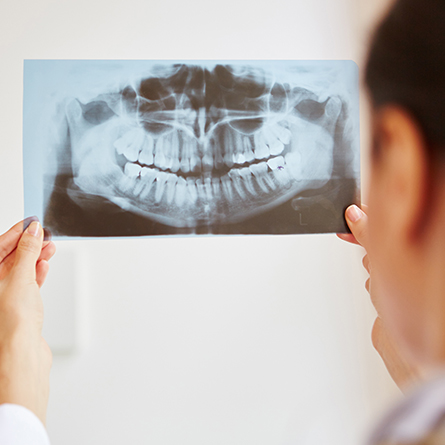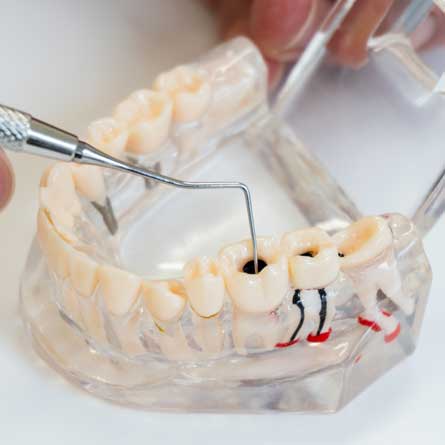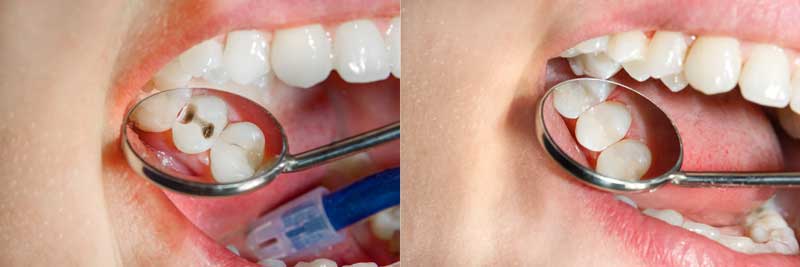
A comprehensive oral examination is a detailed evaluation of a patient’s oral health.
The procedure may involve digital x-rays, an assessment of the bite, jaw, and temporomandibular joint (TMJ), gum disease evaluation, and oral cancer screening. Dentists use this examination to identify potential oral health problems from tooth decay and bite issues to gum disease and oral cancer. During the evaluation, your dentist may also discuss oral hygiene practices, dietary habits, and lifestyle choices that can impact your oral health.
The comprehensive oral examination is a critical part of preventive dental care. With it, dentists can detect and resolve potential issues before they become more serious, develop complications, and require more invasive procedures.
Dental hygiene is essential for healthy teeth and gums. You need to maintain daily habits while paying bi-annual visits to the dentist for checkups and professional cleanings.
In addition to brushing and flossing daily, you also need to maintain a healthy diet (limiting sugary and acidic foods and beverages) and drink plenty of water.
By prioritizing dental hygiene, you can preserve a healthy smile and prevent oral health problems.


Root canal therapy, also referred to as endodontic treatment, is used to treat infected or damaged teeth.
Root canal therapy is the recommended option for severely damaged or decayed teeth or for keeping an infection from spreading further into the root of the tooth. The dentist will remove the infected or damaged pulp from the inside of the tooth and replace it with a filling. This prevents the spread of infection and preserves the natural tooth.
With proper care, a tooth that has undergone root canal therapy can last a lifetime.
Tooth extraction is a dental procedure that involves removing a tooth from its socket in the jawbone. It addresses problems like tooth decay, gum disease, injury, or crowding.
The procedure is typically performed under local anesthesia, and the dentist will use specialized tools to carefully loosen and remove the tooth. After the tooth is extracted, the patient may need to take special care to prevent infection and promote healing. In some cases, a replacement tooth may be recommended.


At our Beamsville dental clinic, we use white fillings to repair cavities in a way that blends seamlessly with the natural tooth. These fillings are long-lasting and durable, and they don’t contain any harmful chemicals or metals. As a family dentist in Beamsville, we also recommend regular checkups to catch cavities early.
We use digital x-rays to diagnose dental problems with a lower radiation dose than traditional x-rays. This technology allows us to view images immediately, so we can provide an accurate diagnosis and treatment plan for our patients.


If a patient grinds their teeth at night or plays sports, a mouth guard or night guard can protect their teeth from damage. At our dental clinic, we offer custom-made mouth guards and night guards to ensure maximum comfort and protection. We recommend visiting our dentist for a fitting to ensure the best results.

